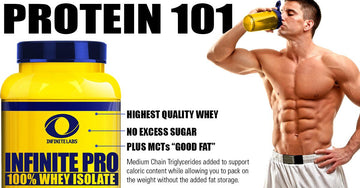

Appetite Control for Women: It's Hormones, Not Lack of Will Power
Table of Contents
Appetite Control: It’s Hormones, Not Lack of Will Power
by: Robbie Durand
Lets face it, when dieting, the hardest part of the diet is controlling your appetite. Chances are your weight problem is not a matter of will or discipline, but a hormonal imbalance. Physiologically, your body is fighting you when you lose weight. Our genes have not changed much since when we were caveman, when our bodyfat starts dropping, your body thinks that there is a food shortage and your brain says to the body, “There is a food shortage, slow down metabolic rate and lets preserve what we got because we don’t know when there is going to be food again.” So its not that a person has no will power, its just that their hormones are fighting against them.
One of the major hormones affected by dieting is leptin, the hormone leptin regulates metabolism and appetite in two ways: a.) It lets your brain know how much fat is in your body. As leptin levels rise, your appetite diminishes. As leptin levels fall, your appetite increases. b.) It regulates the rate of fat breakdown. As leptin levels rise, your metabolic rate increases. As leptin levels fall, your metabolism slows.
Leptin is the satiety hormone produced by fat cells, so it would seem logical that those with more fat cells would produce more leptin, which would signal the body to eat less food and weight would normalize. The interesting fact is that most obese people are “leptin resistant.” It basically means that their bodies are sending the signal to turn off eating, but the message is getting blocked. Its like a mother yelling at her kid to turn the radio down but the radio is so load that the kid does not hear his mother’s voice. So when you go on a diet and lose weight, your leptin levels decline. Your body then increases catabolic hormone activity (i.e. cortisol) and appetite increases (i.e. leptin levels drop), and metabolic rate decreases which makes dieting very difficult, you tend to slip off your diet and gain all that weight right back.


There are a few things that can make dieting easier and control leptin, here are some factors that can help you maintain leptin levels while dieting:
–Avoid Severe Calorie Restriction: Severe calorie restriction and crash diets inhibits leptin secretion. A diet plan should consist of a gradual reduction in calories compared to a crash diet.
–Incorporate Periodic Cheat meals: Your body then senses the rush of fuel and boosts leptin levels, increasing your metabolism and priming your body for fat loss. Cheating helps ease your body down to lower daily leptin levels without making it feel too starved.
–Sleep: When you go to sleep, your leptin levels naturally rise. Research has found that shorter sleep periods (6 hours or less instead of lower overall daily leptin levels, cause an increase in appetite, and even make people crave carbs and other fattening foods.)
– Avoid Fructose: Just about all processed foods are made with fructose high corn syrups. Ever wonder why you feel like you can eat some foods and not get full. Some foods like ice cream, breakfast cereals, and fruit bars are rich in fructose. Fructose makes the brain more resistant to leptin. Remember, leptin regulates appetite so if the signal is blocked, your brain is not going to receive the signal to stop eating. Normally responsive receptors in the brain have a muted, or even silent, response to leptin when fructose intake is high. Researchers found that fructose stimulated the brain’s reward system more than glucose while producing a lower level of satiety, which is a feeling of fullness. It’s easy to see how these effects could lead to excessive consumption. The fructose that is used in most processed foods is not healthy, while researchers assure us that when it occurs naturally in fruit, fructose is generally harmless.
 – Take fish oil. Omega 3 fatty acids are linked to decreased hunger. Having high levels of Omega-3 in your body will help your body react to insulin properly by sending out the right amount of Leptin when it needs it. Inflammation in the body can make leptin receptors resistant to the actions of leptin and fish oils decrease inflammation. Some individuals have alterations in their leptin receptors, which is more common in individuals who are overweight. When these leptin receptor malfunction, it results in insulin resistance and eventually metabolic syndrome. Researchers showed that too many omega 6 oils (common in today’s junk food diets) magnifies the malfunction of the leptin receptor gene polymorphisms. On the other hand, high omega 3 with lower omega 6 enabled the handicapped leptin receptors to function normally. This is one reason why DHA oil is so important to human health, especially in individuals who are overweight or have moved to the more advanced metabolic syndrome (insulin resistance, high blood pressure, high cholesterol).
– Take fish oil. Omega 3 fatty acids are linked to decreased hunger. Having high levels of Omega-3 in your body will help your body react to insulin properly by sending out the right amount of Leptin when it needs it. Inflammation in the body can make leptin receptors resistant to the actions of leptin and fish oils decrease inflammation. Some individuals have alterations in their leptin receptors, which is more common in individuals who are overweight. When these leptin receptor malfunction, it results in insulin resistance and eventually metabolic syndrome. Researchers showed that too many omega 6 oils (common in today’s junk food diets) magnifies the malfunction of the leptin receptor gene polymorphisms. On the other hand, high omega 3 with lower omega 6 enabled the handicapped leptin receptors to function normally. This is one reason why DHA oil is so important to human health, especially in individuals who are overweight or have moved to the more advanced metabolic syndrome (insulin resistance, high blood pressure, high cholesterol).
Move! Exercise tunes up your leptin machinery. When you do aerobic exercise the leptin receptors all over your body are improved. When you do strength training exercise you turn on leptin gene function in muscles which enables your muscles to dispose of extra calories as heat – an excellent way to ramp up natural fat burning.
Once you make this change — adding the right fruits and vegetables, nuts and seeds, and protein sources, and cutting back on sugar and unhealthy fats — you’ll notice a remarkable change. Not only will you feel better and look better and find the pounds dropping almost effortlessly, but you’ll also stop craving unhealthy foods.
Taheri, S., Lin, L., Austin, D., Young, T., & Mignot, E. (2004). Short Sleep Duration Is Associated with Reduced Leptin, Elevated Ghrelin, and Increased Body Mass Index PLoS Medicine, 1 (3) DOI:
Bettina Karin Wölnerhanssen, Anne Christin Meyer-Gerspach, André Schmidt, Nina Zimak, Ralph Peterli, Christoph Beglinger, Stefan Borgwardt. Dissociable Behavioral, Physiological and Neural Effects of Acute Glucose and Fructose Ingestion: A Pilot Study. PLOS ONE, 2015; 10 (6):
Nedeltcheva AV, Kilkus JM, Imperial J, Kasza K, Schoeller DA, & Penev PD (2009). Sleep curtailment is accompanied by increased intake of calories from snacks. The American journal of clinical nutrition, 89 (1), 126-33
Keim NL, Stern JS, & Havel PJ (1998). Relation between circulating leptin concentrations and appetite during a prolonged, moderate energy deficit in women. The American journal of clinical nutrition, 68 (4), 794-801
Wang, J., Obici, S., Morgan, K., Barzilai, N., Feng, Z., & Rossetti, L. (2001). Overfeeding Rapidly Induces Leptin and Insulin Resistance Diabetes, 50 (12), 2786-2791


















